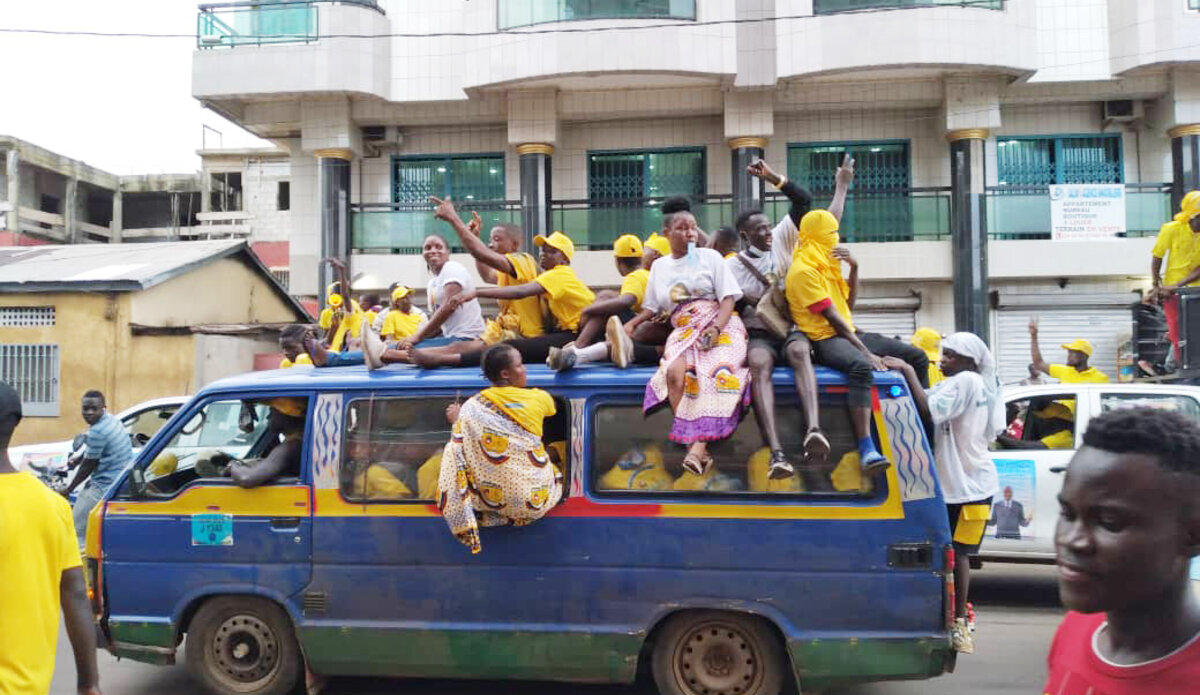Elections in West Africa and the Sahel, between crisis and hope
Five countries will hold elections: Guinea, Cote d’Ivoire, Burkina Faso, Ghana and Niger. Despite the COVID-19 pandemic, UNOWAS, in close coordination with its regional partners, ECOWAS and the AU, have been mobilized through joint missions to prevent potential crises and conflicts.
Elections are one of the main means for citizens to participate in decision-making that affects their lives, and to hold their representatives accountable for their actions and the results that flow from them. Elections are also an important moment in the strengthening of peace and democracy.
In West Africa and Sahel sub-region, which faces a multitude of challenges, the political legitimacy conferred by the holding of peaceful, transparent and credible elections is indispensable for ensuring the optimal functioning of the state and meeting development and security challenges.
The population of West Africa stands at about 391,026,791 people who represent nearly 29% of the total population of the continent. About 41% (159,226,372) of this population will go to the polls in the last quarter of this year, to choose their Presidents of the Republic. They are Guinea, Cote d’Ivoire, Burkina Faso, Ghana and Niger.
30 years after the first waves of democratization in the sub-region, the 2020 elections are an opportunity for the citizens of these countries to consolidate democratic practices.
Indeed, despite the reforms undertaken to adjust legal and regulatory frameworks, electoral processes continue to suffer from a lack of consensus and fuel political tensions in these countries.
Elections against the backdrop of COVID-19
Beyond being an election year in the sub-region, 2020 is also the year of the COVID-19 pandemic.
The upheaval in political, social and economic life caused by the eruption of this pandemic has added to the many challenges facing the countries of the sub-region.
Faced with this unprecedented situation, UNOWAS quickly mobilized to support these countries in their fight against the pandemic, and in their efforts to organize peaceful and inclusive elections.
Virtual» meetings and working sessions were organized with the various UN Resident Coordinators in the five countries, national authorities, political actors, civil society representatives, as well as regional and international partners.
The objective was to take stock of the preparations for the upcoming elections to be held against the backdrop of COVID-19, and to mobilize all stakeholders to work together to ensure the organization of peaceful elections.
These «virtual» working sessions helped assess the needs and expectations of the actors involved in the electoral process. They also helped to diagnose the various political situations and to develop an action plan focused on conflict prevention.
Joint actions for conflict prevention
It is clear that there is no shortage of disputes related to electoral processes. The political tensions and crisis observed during the pre-electoral period, often accompanied by acts of violence, as in Guinea and Côte d’Ivoire, are a cause for concern, as they carry the risk of a major crisis that could affect the stability and security of the countries concerned and the sub-region.
While maintaining «virtual» discussions with stakeholders to help bridge differences and foster consensus, it was necessary to plan physical meetings with all potential actors in the five countries.
This was possible when the governments of the sub-region lifted some of the measures put in place to combat COVID-19, including travel restrictions.
In early September, the Special Representative of the Secretary-General and Head of the United Nations Office for West Africa and the Sahel (UNOWAS), Mohamed Ibn Chambas, began a series of marathon visits to the countries concerned.
From Niger to Guinea, through Côte d’Ivoire and Burkina Faso, the Special Representative, alone and with his partners of the Economic Community of West African States (ECOWAS) and the African Union (AU), undertook several good offices missions aimed at encouraging everyone to work for peaceful and inclusive elections.
Mohamed Ibn Chambas recalled the need to resolve disputes through legal means, and to seize the opportunity of these elections to further consolidate peace and democracy. He also called on other actors, especially the media in Guinea, to contribute to the culture of peace and to refuse the dissemination of hate speech and divisions.
Aware of the stakes of these elections and the importance of joint regional action, UNOWAS and its ECOWAS and AU partners have undertaken high-level pre-election missions, notably to Côte d’Ivoire and Guinea to help stakeholders overcome their disagreements and act in the interest of their populations who aspire to peace and prosperity.
UN Secretary-General Antonio Guterres echoed these calls, urging all political leaders and their supporters to refrain from incitement, inflammatory language, ethnic profiling and violence.
This article is published in the UNOWAS Magazine N12 -> Download here
 UN
UN


